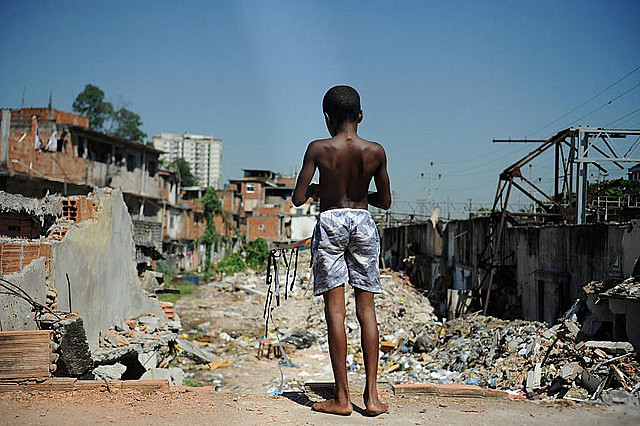People’s movements struggling for the right to housing became more concerned about the Michel Temer administration in Brazil over the past few days, as government officials said the 2019 budget will not include the expected construction of 79,500 housing units, including urban and rural areas.
During a meeting last Thursday with members of the Ministry of Planning, Budget, and Management in the capital city of the country, Brasília, leaders of housing movements were told that the government will not allocate budget in 2019 for the Minha Casa Minha Vida – Entidades program – one of Brazil’s major federal affordable housing programs – to build 29,500 housing units, as previously promised by the minister of Cities, Alexandre Baldy, during the National March for the Right to the City staged in Brasília in June.
The government also informed that the 2019 budget will not be enough to commission 50,000 rural housing units – another plan that was agreed upon with Baldy.
The government interrupted the national housing policy after the 2016 coup. As the budget battle intensifies due to fiscal adjustments made by Temer, the movements become increasingly angry.
Behind curtains, the government is drafting the 2019 budget proposal, which will be submitted to the Congress by the end of the month. According to Evaniza Rodrigues, from the National Union for Affordable Housing, the government told activists that their plan is to allocate a total R$6.2 billion (US$ 1.6 billion) to the Ministry of Cities, including the housing, sanitation, and urban mobility areas.
The information is not official yet, but people’s movements are on the watch, especially with the impacts of the fiscal adjustment, which should be in force for the next 20 years.
“It’s a detectable effect of the constitutional amendment that limited spending, and this situation will be replicated in all areas. That just goes to show the lack of commitment of this government with the poorest people,” Rodrigues argues.
Low income
According to a 2015 survey by the Getúlio Vargas Foundation based on official data by the Brazilian Institute of Geography and Statistics, the country has a housing shortage of 7.7 million houses.
This is the latest survey available to measure the problem, but Evaniza Rodrigues points out that approximately 90 percent of that total are people who earn less than three minimum wages (about US$ 735 a month), the demographic that has been suffering the most since the housing policy has been suspended.
“They don’t have an alternative to look for housing. They either live in illegal, substandard, unhealthy homes in high-hazard areas, which they access through their own efforts, or they access government programs,” Rodrigues points out.
This is the case for social worker Sandra Kocura, who cannot afford to buy a house in the real estate market. She lives in the East Zone of São Paulo and has been registered in housing programs for about 15 years, but is currently staying at a friend’s house because she cannot pay rent anymore.
The unofficial information that the government will not build those houses next year left the social worker and single mother of a 10-year-old even more frustrated.
“We, as workers, are brutally attacked every day. There is no political interest in creating housing policies to guarantee this right [to housing]. This is Brazil's deep inequality,” she said.
Consequences
After receiving the news from the government, people’s movements expect that the housing issue will only get worse in the country, as more properties are likely to be squatted and more houses likely built in high-hazard areas.
“You’re leaving a ticking time bomb for the next one [who will take office] to start over from scratch, because they won’t even leave a budget,” Evaniza Rodrigues argues.
Committee
Housing movements also criticize the end of the Cities Committee, dismantled last year by the then minister of Cities Bruno Araújo.
The National Confederation of Residents’ Associations, which gathers approximately 20,000 organizations, points out that the committee played an important role for the people because it made urban policy planning possible by including the community in the debate.
“The committee was the only place where we had social control over the development and implementation of these policies. We’ve been set back more than 20 years backwards over the past two years of Temer administration,” said Getúlio Vargas Júnior, president of the confederation.
Right to the City
Re-establishing the committee was also a promise made by minister Alexandre Baldy during the National March for the Right to the City, but Vargas Jr. points out the government has not followed through with the deal yet.
“I don’t have a clear answer. We have expectations and our mobilization, but no response from the government,” he points out.
Government
Brasil de Fato contacted the Minister of Cities to address the issues criticized by the sources interviewed for this article, but its PR office did not immediately respond to requests for comment.




